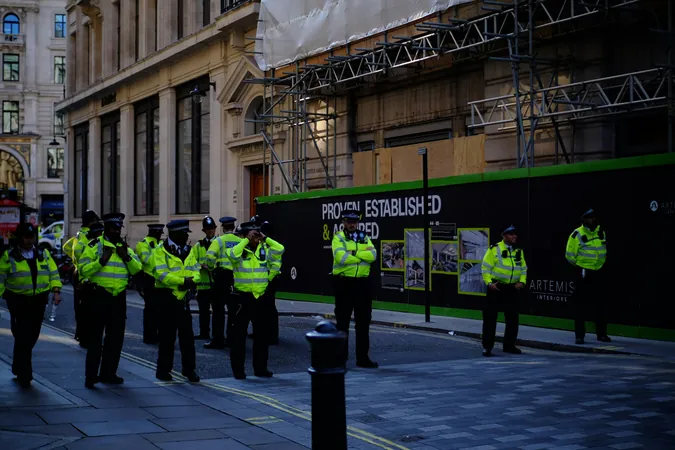
Police Officers at Alarmingly High Risk of Traumatic Brain Injuries and PTSD—Shocking New Study Reveals!
2025-04-11
Author: Yu
A Troubling Trend for Police Forces
A groundbreaking study reveals that police officers face a staggering risk of traumatic brain injuries—more than double that of the general public! The research, conducted by the University of Exeter, highlights the alarming connection between these injuries and complex post-traumatic stress disorder (PTSD) among law enforcement personnel.
The Eye-Opening Stats
Published in *The Journal of Head Trauma Rehabilitation*, this enlightening study surveyed 617 active police officers from across the UK. An astonishing 38% reported having suffered at least one traumatic brain injury, typically defined as a head injury that leads to a loss of consciousness or symptoms like confusion and memory issues. In stark contrast, only 12% of the general population reported similar injuries.
The Silent Struggle with PTSD
Even more concerning, 61% of those officers experienced these injuries on multiple occasions. Among those with a history of multiple traumatic brain injuries, the study found they were over twice as likely to meet the criteria for complex PTSD, which presents symptoms like feelings of shame, emotional instability, and difficulties in relationships.
A Call for Immediate Action
Professor Stan Gilmour, a seasoned law enforcement veteran, emphasized the urgent need for monitoring and support for these officers. "The challenges of daily stress and physical confrontations are already significant. Now, add the risk of traumatic brain injuries and PTSD—it's a recipe for disaster!" he stated.
Real-Life Consequences
The fallout for officers with traumatic brain injuries is serious. The study revealed that 22% sustained their injuries while on duty and were significantly more likely to struggle with the debilitating effects of complex PTSD. These issues deeply affect their work performance, relationships, and even parenting skills. Common physical symptoms include chronic headaches, fatigue, and concentration difficulties.
A Pivotal Solution
In response to these troubling findings, researchers advocate for routine assessments of traumatic brain injuries during occupational health checks. They suggest that police forces adopt practices similar to concussion protocols in sports, including targeted interventions and gradual returns to duty.
Lead researcher Nick Smith stated, "Early action is paramount. Many officers endure the compounded effects of past injuries and current PTSD symptoms, creating a heavy burden that seriously impacts their lives. We need to take decisive steps to improve their quality of life and work outcomes."
What This Means for the Future
The study serves as a wake-up call for police departments everywhere. The health and well-being of officers should be a top priority, and this research underscores the dire need for appropriate support systems. With proactive measures, we can help ensure that those who protect us are also protected from the hidden dangers of their profession.



 Brasil (PT)
Brasil (PT)
 Canada (EN)
Canada (EN)
 Chile (ES)
Chile (ES)
 Česko (CS)
Česko (CS)
 대한민국 (KO)
대한민국 (KO)
 España (ES)
España (ES)
 France (FR)
France (FR)
 Hong Kong (EN)
Hong Kong (EN)
 Italia (IT)
Italia (IT)
 日本 (JA)
日本 (JA)
 Magyarország (HU)
Magyarország (HU)
 Norge (NO)
Norge (NO)
 Polska (PL)
Polska (PL)
 Schweiz (DE)
Schweiz (DE)
 Singapore (EN)
Singapore (EN)
 Sverige (SV)
Sverige (SV)
 Suomi (FI)
Suomi (FI)
 Türkiye (TR)
Türkiye (TR)
 الإمارات العربية المتحدة (AR)
الإمارات العربية المتحدة (AR)